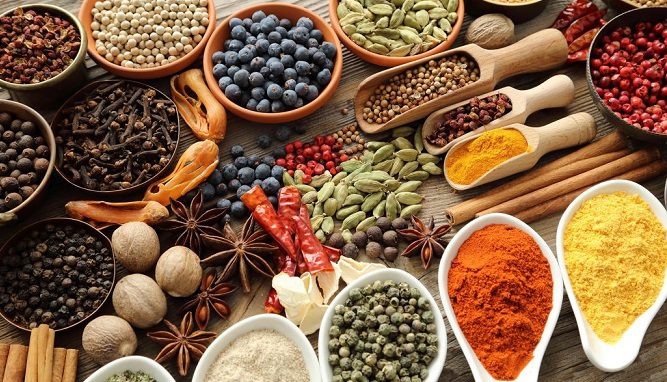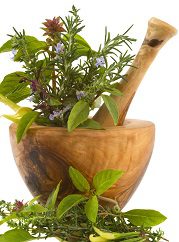Going Herbal May Not Be The Answer To All Ills!
Have you ever wondered why your pasta or salad lacks the zing that so often is an integral part of that dish? You’ve hit the nail on the head! It lacks flavor boosters- those insignificant looking herbs that make an ordinary dish- taste exotic. Fresh herbs augur for great taste. That’s why kitchen gardens or the ‘jardin potagers’-as the French call it- is a must for healthy and lip-smacking meals. So, You’re really missing out on something if you don’t include herbs in your daily diet. Yes, the dried versions work just as well and it’s better than no herbs at all. So, if you don’t have access to a kitchen garden, keep your cupboards well stocked.
Herbs- good or bad?
That’s the million dollar question! Herbs are natural products that you season your food with every day. So they must be harmless- right? Well, not really! Herbal supplements can turn out to be sitting ‘powder kegs’ waiting to ignite! That’s strange, considering herbal medicines have been around for hundreds of years! Grandmothers have been using them for ages and ages. So, what can be wrong with them? Herbs heal wounds, cuts and cure minor ailments, but there is another side to it. Herbal medicines can also have a cascading effect.
Be that as it may, there is no dearth of herbalists- specialists in herbs. They occupy a vantage position in many developing countries across the world. More so, in places where access to medical care is limited or where conventional medicine is a luxury.
What herbalists do
You’d think that a natural herb used in everyday cooking can be administered to anyone and everyone, by you and me. Unfortunately, that’s not true- only herbalists aka phytotherapists are positioned to do so. This is because they understand anatomy and physiology and also know their herbs well. More importantly, these specialists can figure out how to holistically use herbs to trigger the body’s self-healing capacities. They can blend herbs together to suit a specific condition and tackle a particular ailment. Herbalists focus on using different combinations of herbs of different strengths for different ailments. The point is that herbal medicine is not child’s play. Herbs have to be administered with caution, and that’s where herbalists come into the picture.
Herbal remedies- a panacea for all ills?
No way! At least not quite yet! Thousands of people rally round herbal medicines and claim to have solved their medical problems ‘safely and naturally’. Rampant advertisement tout herbal to be a truly safer alternative. That then is where the trouble begins- people go in for them at the drop of a hat. Stop right there and read on to find out why herbs are not always the answer to illness and ailments.
Why herbs may not be safe
-
Not many valid studies have been done on herbal remedies to show how safe and effective they are
-
Herbal remedies are not subjected to the same rigorous trials or scientific studies as conventional medications are. They appear on supermarket shelves and in pharmacy stores without prior approval
- The quality of herbs is highly questionable as they often contain high quantities of bioactive chemicals
-
People tend to be less cautious while using herbs and their supplements. They are lulled into complacency merely because herbs are natural products. In their eyes, herbs can do no harm
Pharmaceutical medication Vs herbal medicines
-
Regulations are in place for pharmaceutical medications but not for herbal medicines. The latter is only a combination of many herbs
-
Pharmacists focus on isolating the main active ingredient of a plant and synthesize its molecules. Herbalists tend to concentrate on the whole plant itself and use it in tinctures and teas
-
Herbs apparently have fewer side effects than conventional medicines. But when used incorrectly, herbal remedies can be fatal
-
Medical practitioners have a code that prevents them from promoting products for commercial purposes. Sadly, this is missing where herbal practitioners are concerned
Take another look at your herbs
Did you know that some herbal supplements interfere with the working of prescription drugs and sometimes have harmful effects? That’s rather scary, isn’t it? Herbs are not necessarily safe just because they are natural. That applies even to those that you use every day without another thought.
- Ginger is a great antioxidant, helps lower your cholesterol, helps in digestion and alleviates nausea. However, high doses trigger abnormal heart rhythms and also effects changes in blood pressure
- Aloe is ideal for wounds and burns and Arnica reduces pains, aches and eases sprains. Neither of them though are really great for the heart when taken internally over a period of time
- Green tea is a great herb and aids in weight loss, reduces the risk of heart disease, diabetes, and even cancer. However, studies show that high doses of the same herb can cause the liver to fail.
- Garlic helps stave off colds and other infections and also helps lower cholesterol. Taken with blood-thinning drugs, it can actually increase the risk of bleeding
- If you’re already on drugs to lower cholesterol then Kava, a sedative herb, is obviously a strict no-no. You could land up with serious liver problems
- You’d think you can’t go wrong with grapefruit juice as it has a whole lot of goodness in it. This busybody though interferes with enzymes that help to absorb medications properly
And that’s just the tip of the iceberg- the list goes on and on. The moral of the story is to check with health professionals before you begin a herb regimen. Don’t forget to let your physician or surgeon know about any other herbal supplements that you may be taking.
Will herbal remedies ever be safe?
Herbal preparations need to undergo quality control and standardization. Only then will they gain greater relevance. When toxicological studies are conducted on all herbal remedies in the market, then they will become safer. It’s great to be able to treat yourself with herbs, but never miss out on the consequences. Play it safe, play it right and you will minimize the harmful effects that they might produce.
No herb is bad by itself, but that doesn’t mean all of them are good. Be it Rosemary, Sage or Thyme, do your homework before embarking on a herbal journey.








